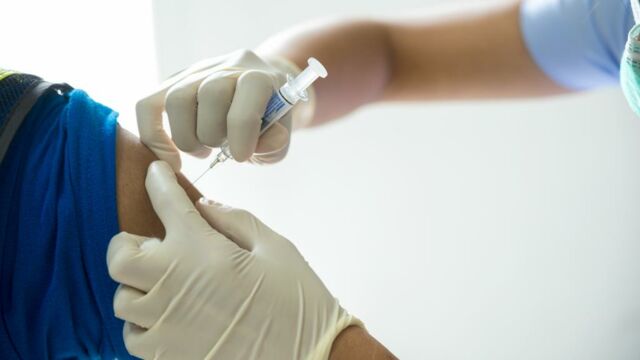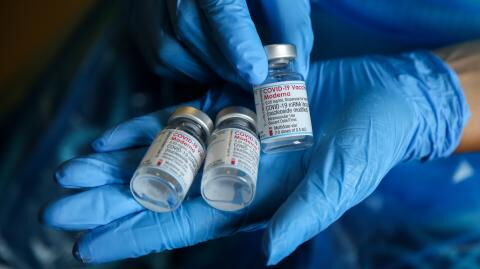There is insurmountable evidence that coronavirus vaccines can help prevent infections, hospitalisations and even death. But, when facing the Delta variant, even fully immunised people can still contract the virus. And, new research shows vaccinated people can match the virus levels of those who have gone jab-less.
Discover our latest podcast
The conclusion was made after a thorough analysis of UK data, supporting the idea that herd immunity is now nothing but a pipe dream.
What is a viral load?
After a person first becomes infected with COVID-19, the virus replicates and infects more cells throughout the body. The virus levels or viral load is the total number of viral particles in one person. The more times the virus has replicated, the higher the virus levels are likely to be.
Do coronavirus levels affect transmission?
So far, some studies have determined that high virus levels in an individual may affect transmission. This is because a higher viral load could lead to increased ‘viral shedding’, where the infected person releases virus particles during their everyday activities such as talking, sweating or eating, which could then be passed on to others.
However, a conclusion is yet to be made regarding viral load in fully vaccinated adults and COVID transmissibility. Sarah Walker, a professor of medical statistics and epidemiology at the University of Oxford, told the Guardian:
We don’t yet know how much transmission can happen from people who get COVID-19 after being vaccinated – for example, they may have high levels of virus for shorter periods of time, but the fact that they can have high levels of virus suggests that people who aren’t yet vaccinated may not be as protected from the Delta variant as we hoped.
The study, conducted by Oxford researchers in partnership with the Office for National Statistics and the Department of Health and Social Care, analysed the results of 2.6m nose and throat swabs from between December 2020 and May 2021, as well as over 811,600 tests from 358,983 brits between mid-May and the 1st of August, when the Delta variant became the UK’s most dominant strain.
The study’s findings support another small report cited by the US Centre for Disease Control and Prevention (CDC), which showed that even vaccinated people could exhibit high levels of viral burden. Initially reported by the Washington Post, the study was used to justify the recommendation that people continue to wear masks in certain indoor settings regardless of vaccination status.
Do higher virus levels mean more severe infection?
Research is yet to conclude whether or not higher virus levels or viral load can lead to more severe COVID infections. However, existing studies such as one analysis of 5,000 coronavirus infected people in Lombardy, Italyand one smaller study involving the Guangzhou Eighth People’s Hospital in China found no apparent difference in viral load between asymptomatic/mild and severe COVID infections.
Is herd immunity still possible?
Herd immunity under the dominance of the Delta variant isn’t looking likely. The idea behind herd immunity is to have enough people in a population gain immunity to a virus so that the spread of the illness slows and indirectly provides protection to those who are unvaccinated.
However, as vaccinated people can still contract and pass on the Delt variant, unvaccinated people are still in harm’s way. Dr Walker explained:
I suspect that, partly, the higher levels of virus that we’re seeing in these [Delta] infections in vaccinated people are consistent with the fact that unvaccinated people are just going to be at higher risk.
While fully vaccinated people can still contract the Delta variant, that doesn’t mean that the vaccine is ineffective. Coronavirus vaccines are still protecting inoculated people from severe infection, hospitalisation and even COVID related death.















